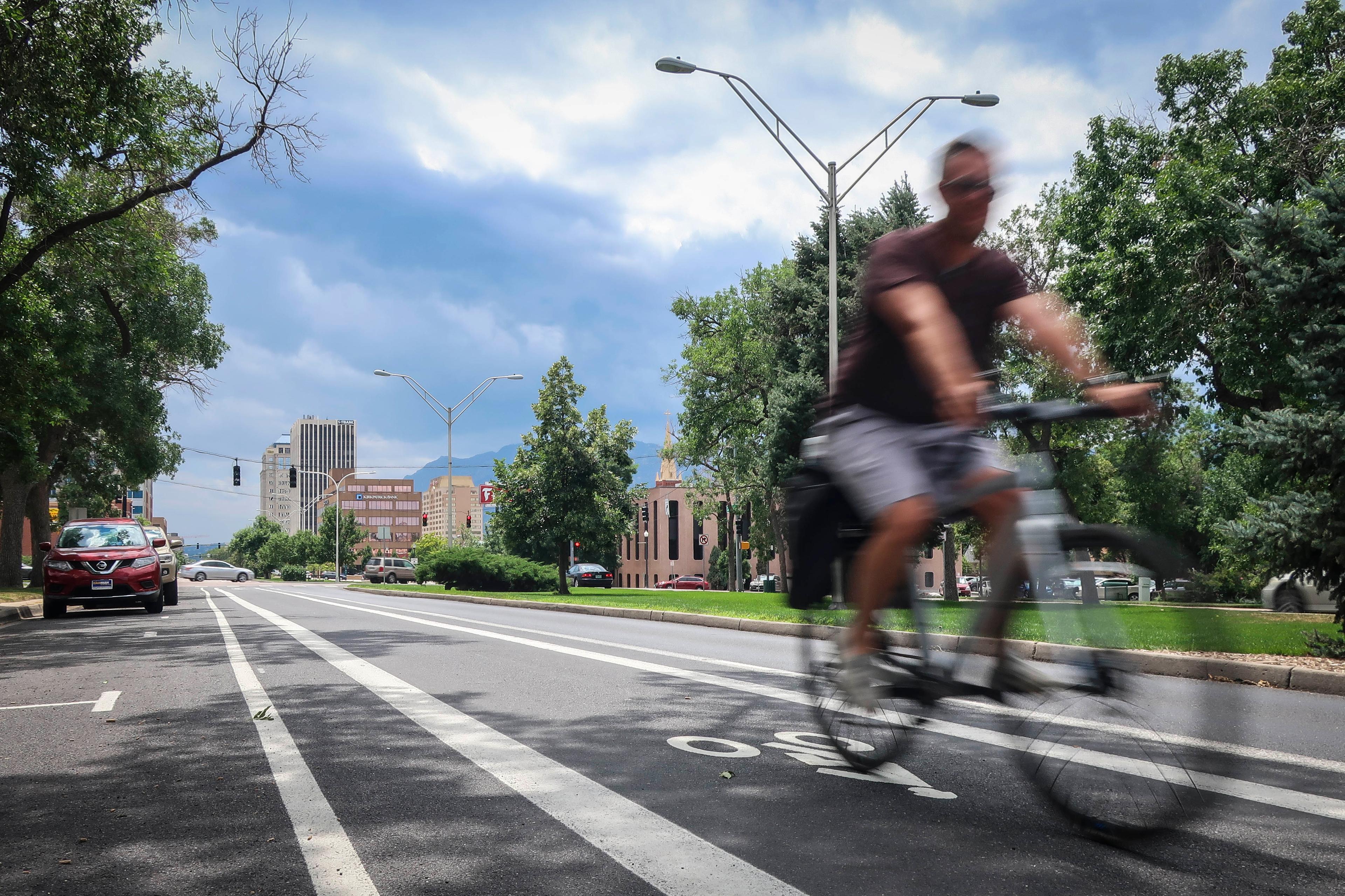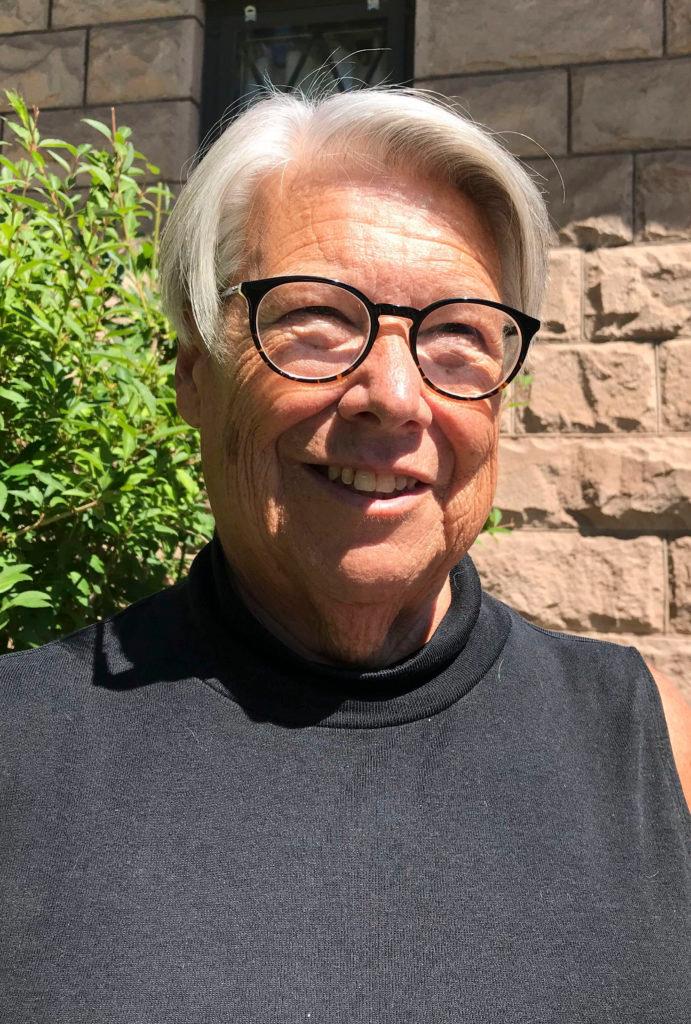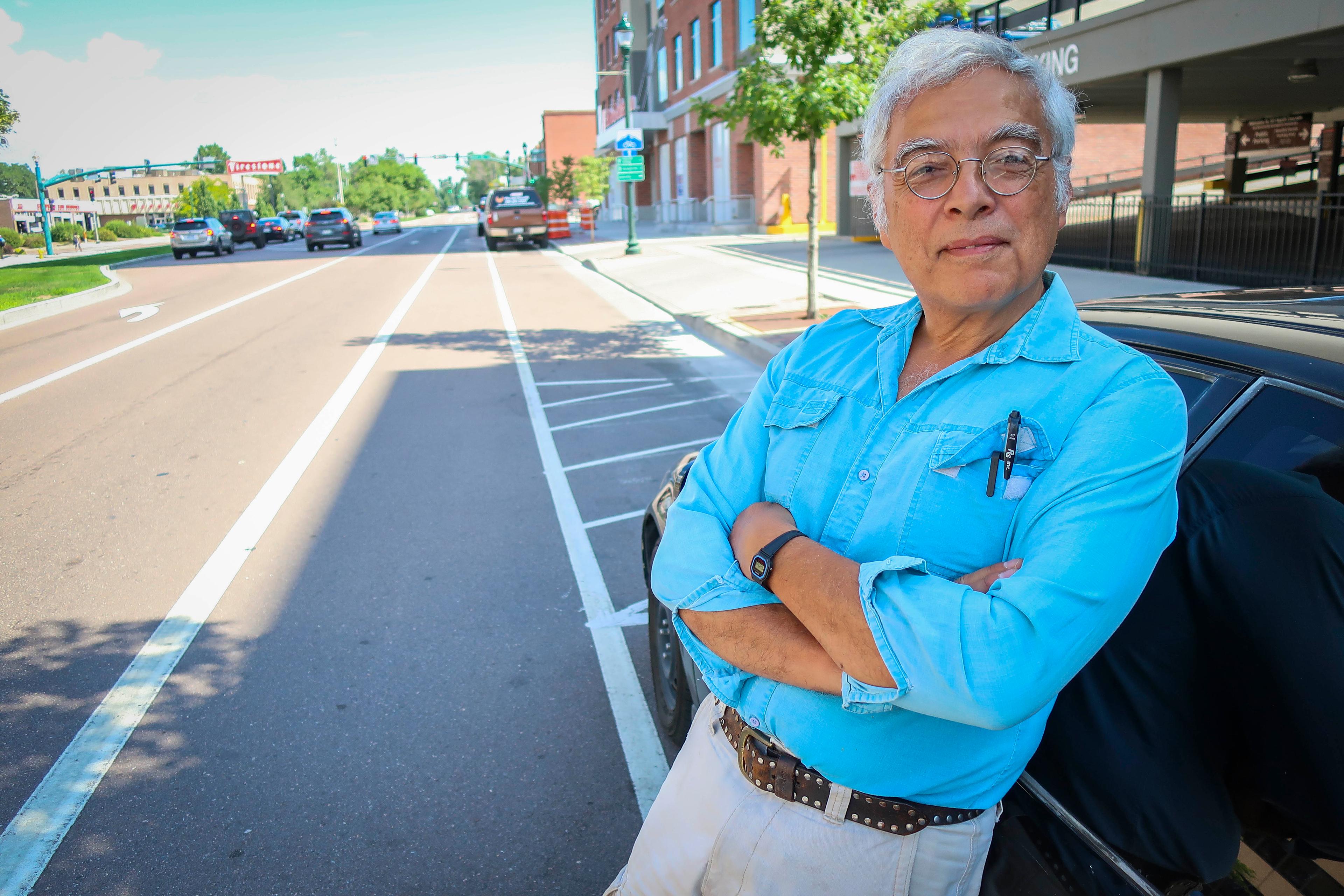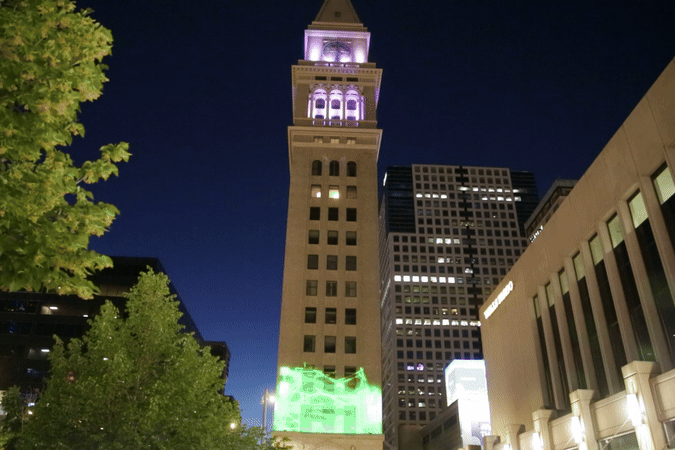
In about a decade as Colorado Springs’ traffic engineer, Kathleen Krager led efforts to improve bicycle infrastructure and reduce speeds on the city’s roads — radical propositions in the car-dependent city.
“People drive incredibly fast and very aggressive in Colorado Springs,” she said. “I spend a lot of my time trying to work on reducing that.”
Krager’s campaign led to angry public meetings and critical editorials. She left the job earlier this year.
On its face, the debate Krager found herself immersed in is a purely local one. Whether the speed limit on Cascade Avenue is too high. How to get students at Colorado College safely across the busy road.
But the dynamics at play there are mirrored in other historically auto-centric cities up and down the Front Range: Most residents are trying to get to their destinations as quickly as possible, and use a car to do it. But advocates, city planners and some politicians say their cities are growing fast enough that alternatives like cycling are an important part of their future.
“We can't just keep building more car lanes,” said Cory Sutela, volunteer advocacy chair for Bike Colorado Springs. “They'll keep getting filled up. We have to figure out better ways for people to get around.”
Research suggests that bike infrastructure, like protected lanes, are the best way to both increase cycling and keep cyclists and motorists safe. And advocates are pushing for more of it in the wake of multiple cyclist deaths over the last few months. But Colorado Springs’ experience shows that building that new infrastructure is not as simple as painting new lines or adding concrete barriers — it can require an uncomfortable debate over what a road is for, and for whom.
Krager was a transportation consultant in Denver for decades.
She took the job in Colorado Springs in 2009, her first in the public sector. She was pleasantly surprised by the level of funding she had to work with, and with the level of autonomy she had.
“Most of the time they let me have my way. Occasionally someone would step in and say, ‘No, do it this way,’ “ Krager said. “But that didn't happen all that often.”

The first thing she noticed was how fast motorists drove around the city. In most cities, Krager said, drivers go about five miles over the speed limit. But when she took speed counts in the Springs, she said drivers consistently went 10 miles per hour over the limit. She said that contributed to a spate of deadly crashes.
“There's nothing that will quite take your breath away like going to a fatal accident in the middle of the night,” she said.
Krager started small, making car lanes narrower and lowering some speed limits.
“I think it took them a while to realize what I was doing,” she said. “It always pays to be quiet.”
But safety was not Krager’s only goal. Coming from traffic-choked Denver, she thought Colorado Springs was growing enough that it needed to change its course.
“If it's going to continue to be the truly pleasant community that it is right now, it needs to increase the alternatives it has to driving so that you don't have absolutely everyone in the city driving on the roadway at the same time,” she said.
So she stepped up her efforts. She converted a traffic lane into a bike lane on a suburban road — until public backlash and data prompted the city to reverse that months later. And then, in early 2018, the city got ready to add a bike lane on Cascade Avenue, a four-lane parkway running from the stately Old North End Neighborhood through Colorado College into downtown.
Krager envisioned a calmer road that would be safer not just for motorists, but for cyclists, pedestrians and the neighborhood it cuts through. The project called for lowering the speed limit and removing a vehicle lane; city staff predicted travel times wouldn’t be significantly affected. It was also included both in the city’s bike master plan and the downtown master plan.
“I put about four years of public involvement into discussing with the neighborhood what to do with Cascade,” Krager said.
But as the project moved closer to reality, those meetings got increasingly tumultuous. Some in the neighborhood even filed a lawsuit trying to stop the project, though that ultimately failed.
One of the most vocal critics was Rick Villa, a retired photographer behind SaferCC.com. He admits now that the bike lanes haven’t hurt his ability to drive on the road. But he still doesn’t like them.

“I'm highly offended by the fact that somebody wants to try to get me out of my car and force me into a bicycle,” Villa said.
To Villa, city leaders like Krager ignored a basic fact when they install bike lanes: most Colorado Springs’ residents use their cars to get around town.
“It's more social engineering than pretty much anything else,” Villa said.
Krager said she understands why so many people got upset over the changes; how people travel is a deeply personal choice.
“We pick our cars, we pick our vehicles, we pick our bikes to show the rest of the world who we are,” she said.
Today, cars go slower down Cascade Avenue.
And the project has also resulted in more bicycle use, according to new city traffic engineer Todd Frisbie. He also said that in his anecdotal observations, travel time hasn’t increased on the road. He said that’s a hard claim for some members of the driving public to swallow.
“There are elements of traffic engineering that are counter-intuitive,” Frisbie said. “And so one of our challenges is to educate people.”
Krager retired and left the city earlier this year. The administration does not have plans for any major infrastructure projects until 2020, though the city's senior bicycle planner Kate Brady said that's not because of any push back over the Cascade project.
"It was strictly a matter of what our opportunities were, and how we spend time and budget to get benefits to the people who bicycle in our community," Brady said.
In the meantime, staff say they’ll focus on things like new signage and education. Those are far less controversial, if not as effective at keeping people safe.
Still, the pause has disappointed City Councilwoman Jill Gaebler, who’s supported bike lanes for years. She’s still glad the city acted when it did.
“I don't think you can ever listen too much, but at some point, you have to stop listening and do something,” she said. “You can't be afraid to do it.”
Krager has had a quiet retirement so far. She drives to a swimming pool three days a week and otherwise walks or bikes to most things around her home in Monte Vista.
“It's very attractive being able to park my car in the garage and not use it for days on end,” she said.
Editor's Note: This story has been updated with comment the city's senior bicycle planner and to reflect that the city of Colorado Springs says it plans to add new bike infrastructure in 2020.









